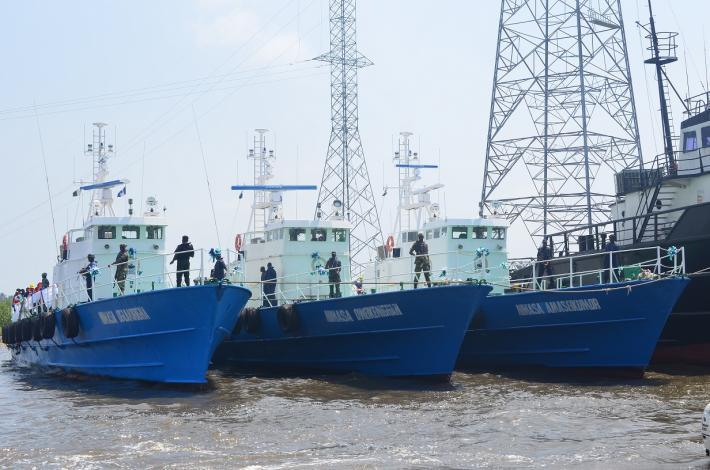Finance
Give us CVFF Disbursement Guidelines in Three Days, NIMASA Orders Banks
The bank involved in the disbursement of the $350 million funds are Polaris Bank, Zenith Bank, UBA, Union Bank and Jaiz Bank.

After it was announced in September 2022 by the Minister of Transport, Engr Muazu Sambo that the Federal Government had concluded plans to approve the Cabotage Vessels Finance Fund (CVFF), the fund is ready to be disbursed.
This was gathered after the Nigerian Maritime Administration and Safety Agency (NIMASA), through its, Director General, Dr Bashir Jamoh, gave the banks involved in the disbursement of the fund 3 days to lay out guidelines for disbursement.
The bank involved in the disbursement of the $350 million funds are Polaris Bank, Zenith Bank, UBA, Union Bank and Jaiz Bank.
“We can’t start disbursement without stakeholders’ engagement, therefore, stakeholders’ engagement starts today. We are on track, we have started with the PLIs and all five of them are here today.”
“What we want them to do now is to come up with a collective decision and this cannot take more than 72 hours. They have to decide on a date because we don’t want them to come individually with their own interest rates; We want them to have a consensus and a standard template on the disbursement of funds as well as the interest rate,” the Director General explained further.
Once the banks have submitted the guidelines for disbursement, Engr Jimoh stated that beneficiaries would be invited to be informed about the necessary details for disbursement as he also elucidated on interest rates and collateral for the funds.
“I told the PLIs that on the issue of collateral, they have NIMASA money with them so all these things will be deliberated upon among themselves.
“On the interest rate, we are giving them international currency, not Nigerian currency, so they cannot start looking at Nigeria lending rate, they should look at the uniform international best practices, and the guidelines stipulate everything.”
The CVFF was introduced in 2004 by the Federal Government. It is a 2% deduction from every contract value awarded under the Cabotage regime which shipowners are expected to access for the development of indigenous shipping capacity in Nigeria and to enable them maintain existing vessels or purchase new ones.